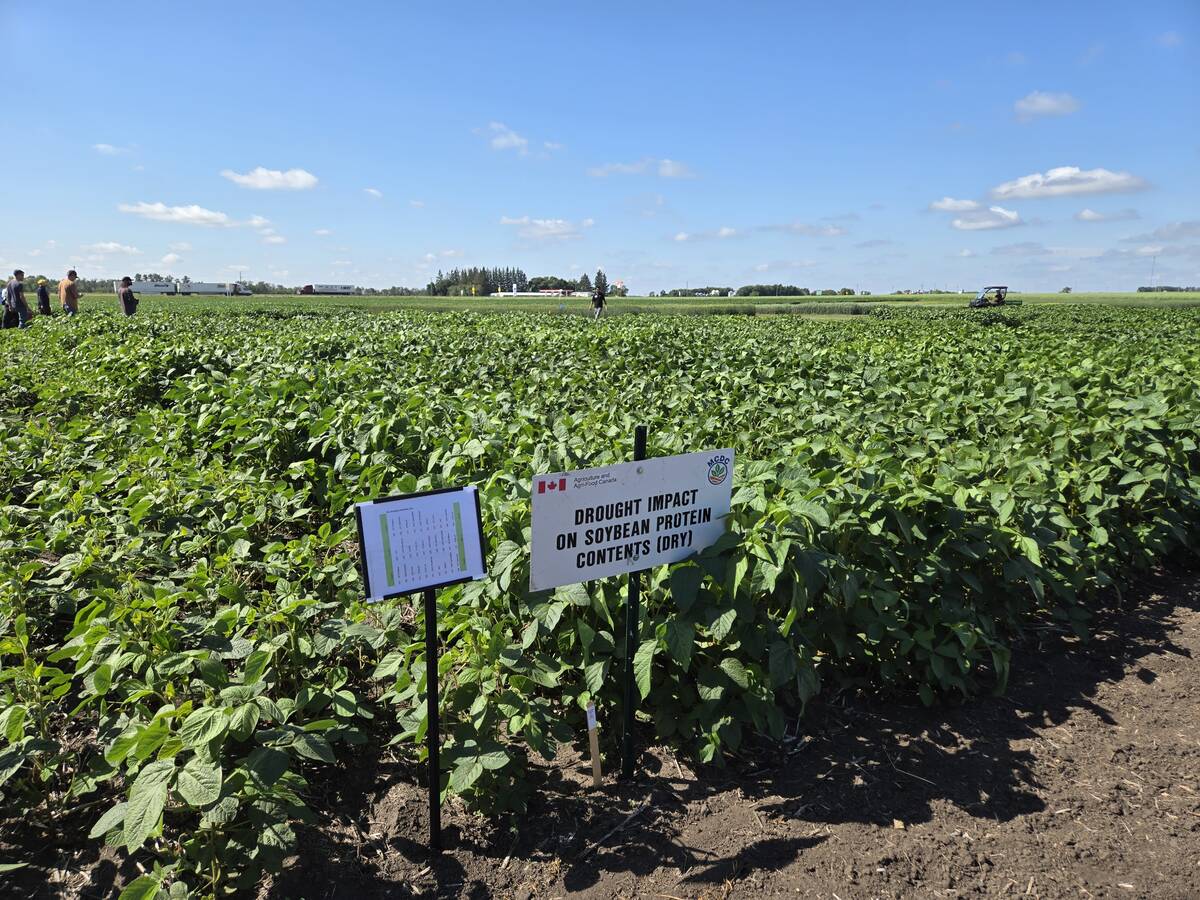Ottawa gone soft | Updated order in council is watered down and lacks teeth for enforcement, says Liberal MP Ralph Goodale
The federal government’s latest plan to regulate railway performance in Western Canada isn’t as tough as it might appear on the surface, says Liberal MP Ralph Goodale.
Under closer scrutiny, he added, it looks more like a railway lap dog than a producer watchdog.
“The government wanted to appear tough so they continued the order in council,” said the Saskatchewan MP and former federal agriculture minister.
“But at the same time, they watered the regulations down substantially. The one-size-fits-all regulatory route that the government is trying to follow is one of the few tools that they have at their disposal, but the reality is that the system they have imposed over the last few years is far from effective.”
Read Also

Carberry field day looks for agriculture solutions
Manitoba farmers explored research solutions for resilient crops, perpetual agronomic issues and new kinds of agricultural products at a field day at the Manitoba Crop Diversification Centre in Carberry on Aug. 6.
Goodale said the lack of logistical co-ordination in Canada’s grain industry will continue to hurt the consistency of wheat shipments and the speed at which they are shipped.
He also raised questions about Ottawa’s ability to enforce weekly volume requirements and impose penalties for non-compliance.
“I think all of the stalling around whether or not CN was in violation of the previous order in council (in September) … demonstrates that the legal effectiveness of the last order was a bit of a hoax,” Goodale said.
Ottawa announced Nov. 29 it has extended regulations that force Canada’s two largest railway companies to haul minimum volumes of grain each week.
Under the new rules, Canadian National Railway and Canadian Pacific Railway will be required to move 200,000 to 465,000 tonnes of grain a week between now and March 28, 2015, or face fines as high as $100,000 each time they fail to comply.
Ottawa also said it expects CN and CP to do the following:
- Submit formal winter contingency plans, including service plans for producer car loading sites and short-line railways.
- Provide information on car order fulfillment by corridor, including details on the number of cars delivered to producer car loading sites and short-line railways.
A spokesperson for transportation minister Lisa Raitt confirmed in an email that railways will not be penalized if they fail to submit winter contingency plans or submit incomplete plans. Failure or refusal to provide information about the number of cars delivered to producer car loading sites and short-line railways also won’t be penalized.
Goodale said it remains to be seen whether Ottawa’s decision to impose “expectations” on railways will have any meaningful impact.
“Expectations is an interestingly ambivalent word,” he said. “There’s no teeth there. No effective mechanism to achieve enforcement.”
Ottawa’s enforcement of its regulatory measures have come under question recently.
In mid-September, an official from Raitt’s office indicated the government would fine CN for failing to meet minimum volume requirements imposed by Ottawa. However, a Raitt spokesperson confirmed in late November that no fines have been issued.
Transport Canada “is currently in the process of examining information from CN in relation to its performance during certain weeks of the 2013-14 and 2014-15 crop years,” the email said. “(But) no decisions have yet been taken.”
In a subsequent email, Transport Canada declined to comment, saying the case is still under review.
Response to Ottawa’s new regulations has been mixed in Saskatchewan, where farmers were most affected by last winter’s rail delays.
“We’re pleased that Ottawa kept the minimum volume requirements, but we’re a little disappointed with the numbers,” said Agricultural Producers Association of Saskatchewan president Norm Hall.
“We think they’re a little bit on the low side.”
Hall said he was pleased that Ottawa acknowledged farmers’ support for regulations, but he expressed concerns about enforcement.
Cam Goff, chair of the Saskatchewan Barley Development Commission, said the interim regulations announced in late November might help in the short-term, but they will not address the ongoing need for tougher legislation, better enforcement and logistical co-ordination.
“Is it better than nothing? I suppose it is,” said Goff, a former CWB director. “But it’s not what’s required to solve the transportation and marketing problems that Saskatchewan farmers are facing.”















